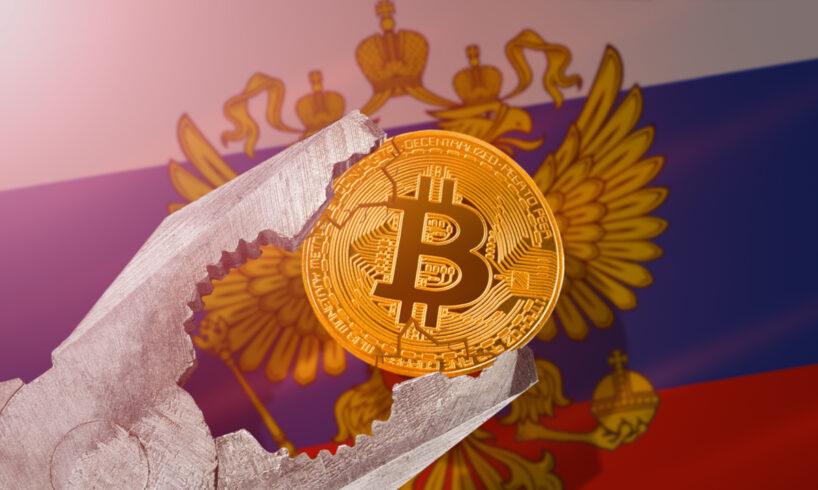
The bill “On Digital Currency,” meant to comprehensively regulate crypto transactions in Russia, will be a “tough” law, according to the head of the State Duma Financial Market Committee. The legislation is yet to be finalized and will not be reviewed by lawmakers in the near future, Anatoly Aksakov revealed in an interview, despite Bank of Russia’s decision to drop its opposition to crypto payments, at least when they facilitate Russia’s foreign trade amid sanctions.
Adoption of Russian Law on Cryptocurrencies Delayed by Ongoing Debate Over Rules
Discussions about the regulation of the Russian crypto market continue in the government and it’s not worth expecting that the draft law “On Digital Currency” will be filed with the State Duma soon, the Chairman of the Financial Market Committee at the lower house of Russian parliament, Anatoly Aksakov, told Parlamentskaya Gazeta this week.
Russian officials are currently debating over the bill’s third revision and the talks are heated, Aksakov unveiled. “I don’t think that the document will appear in the State Duma in the near future. The situation in the crypto market does not add optimism either — bitcoin has collapsed a lot against the backdrop of sanctions decisions,” the high-ranking deputy elaborated, despite earlier statements the legislation should be adopted during the house’s spring session.
The lawmaker noted that the U.S. State Department has started clamping down on the crypto space, with the presumption that bitcoin is being used to circumvent sanctions against Russia. “There are suspicions that the American intelligence services largely control this market, so there is no desire to fall under their invisible or visible eye when carrying out financial transactions,” Aksakov added.
Bank of Russia Not Opposed to International Crypto Payments
The bill “On Digital Currency,” which was initially submitted to the federal government by the Russian finance ministry in February, is likely to be adopted in its stricter version, Aksakov further unveiled. That includes the establishment of a centralized platform for exchange, settlements, and other operations with digital currencies, he detailed.
Russian officials have been working on the legislation in the past few months with most institutions supporting the regulatory approach proposed by the Ministry of Finance, which favors legalization under strict government control of crypto-related activities such as trading and mining, while prohibiting the use of bitcoin and the like in payments.
The Central Bank of Russia (CBR) has found itself in isolation with its push for a blanket ban, including on the issuance and exchange of cryptocurrencies. However, the monetary authority recently softened its position a little, backing a proposal to employ digital coins for international settlements while maintaining that crypto assets bring risks for the country’s financial system.
Quoted by the Kommersant business daily, the CBR’s First Deputy Chairman Ksenia Yudaeva said during a press conference that the regulator does not oppose the use of cryptocurrencies “in international transactions and the international financial infrastructure.” A respective provision, allowing crypto payments in foreign trade, has been added to the Minfin’s draft law.
Tags in this story
bill, Central Bank, Crypto, crypto payments, Cryptocurrencies, Cryptocurrency, draft law, finance ministry, international settlements, Law, lawmaker, lawmakers, lower house, parliament, Payments, Regulation, Regulations, Russia, russian, State Duma
Do you expect Russia to adopt its new law “On Digital Currency” this year? Tell us in the comments section below.
Lubomir Tassev
Image Credits: Shutterstock, Pixabay, Wiki Commons
Disclaimer: This article is for informational purposes only. It is not a direct offer or solicitation of an offer to buy or sell, or a recommendation or endorsement of any products, services, or companies. Bitcoin.com does not provide investment, tax, legal, or accounting advice. Neither the company nor the author is responsible, directly or indirectly, for any damage or loss caused or alleged to be caused by or in connection with the use of or reliance on any content, goods or services mentioned in this article.
More Popular NewsIn Case You Missed It















